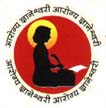Daily about 100 children are Hospitalized in Mumbai alone with kerosene poisoning.
About 1 lakh women & children die of Burns due to kerosene stoves in India annually.
To avoid this let us teach safe use of Kerosene to every one.
Kerosene / Petrol cause chemical Pneumonia on aspiration.
It has low viscosity. It spreads over large areas of lining of Lungs.
It destroys surfactant & causes alveolar collapse, ventilation perfusion.
mismatch & Hypoxia. It directly damages capillaries. Kerosene is not absorbed
thorough G.I. tract. Pneumonia does not occur on inhalation of fumes.
Signs & Symptoms.
Irritation of mout, throat & stomach causes coughing, choking, vomiting.
The Breath smells of kerosene. Respiratory difficulty with breathlessness, indrawning of
chest bronchospasm wheezing & crepts appear. If there is no breathlessness there is no toxicity.
Severe breathlessness is a bad sign. Hypoxia can cause brain & other multiple organ failure & death.
Fever comes in 6 hrs. due to tissue damage. Antibiotics & Steroids are not needed
to mild & moderately toxic patients. Lung damage is highest 3 days after ingestion..
Management : take X-ray after 6 hrs. X-ray s/o diffuse chemical Pneumonia.
Discharge : asymptomatic patients with normal X-ray. If X-ray is abnormal but patient is
Asymptomatic case for follow up. Admit if good follow up is doubtful.
Admit symptomatic patients for observation & supportive care prophylactic antibiotics
steroids are not recommended. Do X- ray, Sa O2, ABG if possible ABG shows hypoxemia,
hypercartia & respiratory acidosis.Write a letter to Shri Ram Naik Petroliam Minister, New Delhi.
Ask him to educate the people on safe care of kerosene.
Ref : Pediatrics in Review in Pediatrics Jan. 2002.
|
